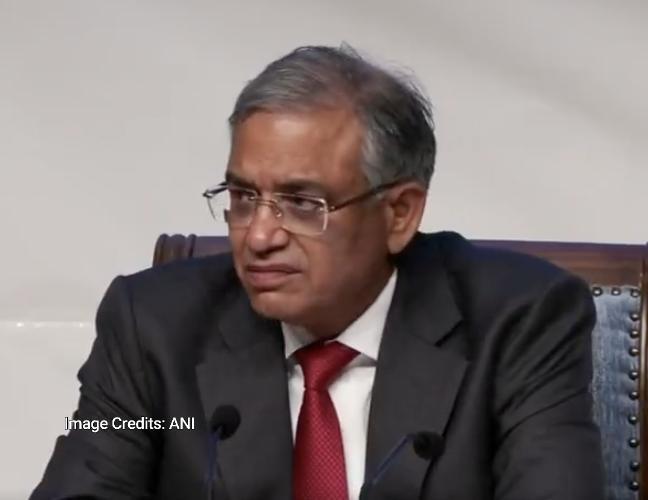
EC Doesn’t See Opposition or Ruling Party, Everyone is Equal: CEC
In a press conference held on Sunday, Chief Election Commissioner (CEC) Gyanesh Kumar made some striking remarks that sent shockwaves across the political spectrum. While addressing the media, Kumar stated that the Election Commission of India (ECI) does not differentiate between the Opposition and the ruling party, and everyone is treated equally. He emphasized that the doors of the poll body are open to all parties and individuals, without any bias.
Kumar’s comments come at a time when the political landscape in the country is rife with controversy and allegations of political vendetta. The most recent controversy has been sparked by Congress leader and Leader of Opposition in Lok Sabha Rahul Gandhi’s allegations of “vote theft” against the ECI. Gandhi has been vocal about his concerns regarding the commission’s impartiality, claiming that the EC is biased towards the ruling party.
However, Kumar’s statement seems to suggest that the ECI is committed to upholding its neutrality and treating all political parties with the same level of fairness and decorum. The CEC’s remarks have been interpreted by many as a clear message to all political parties, including the ruling party, that the ECI will not tolerate any favoritism or bias.
Kumar’s statement is significant, especially in the context of the ongoing political turmoil in the country. The EC has been facing criticism from various quarters, including opposition parties, over its handling of certain electoral issues. The ECI has been accused of being slow in taking action against political parties that violate electoral norms, and of exhibiting bias towards certain parties.
However, Kumar’s statement suggests that the EC is committed to maintaining its neutrality and impartiality. The CEC’s emphasis on treating all parties equally is a clear message to all political parties that the EC will not tolerate any favoritism or bias. This is a welcome development, especially in a country where political polarization has become a major concern.
Kumar’s statement has also been seen as a response to Rahul Gandhi’s allegations of “vote theft”. Gandhi has been claiming that the EC is working in tandem with the ruling party to manipulate the electoral process. However, Kumar’s statement seems to suggest that the EC is committed to upholding the integrity of the electoral process, and that it will not tolerate any attempts to undermine it.
The CEC’s statement has also been seen as a message to political parties to desist from making baseless allegations against the EC. The EC has been criticized for being slow in taking action against political parties that violate electoral norms. However, Kumar’s statement suggests that the EC is committed to upholding the law and will not hesitate to take action against any party that violates electoral norms.
The EC’s commitment to neutrality and impartiality is crucial for the success of the democratic process. In a country where political polarization has become a major concern, the EC’s commitment to neutrality is a beacon of hope. The EC’s statement is a clear message to all political parties that the commission is committed to upholding the integrity of the electoral process, and that it will not tolerate any attempts to undermine it.
In conclusion, the CEC’s statement is a significant development that suggests that the EC is committed to maintaining its neutrality and impartiality. The EC’s emphasis on treating all parties equally is a clear message to all political parties that the commission will not tolerate any favoritism or bias. This is a welcome development, especially in a country where political polarization has become a major concern.
Source: https://www.youtube.com/watch






